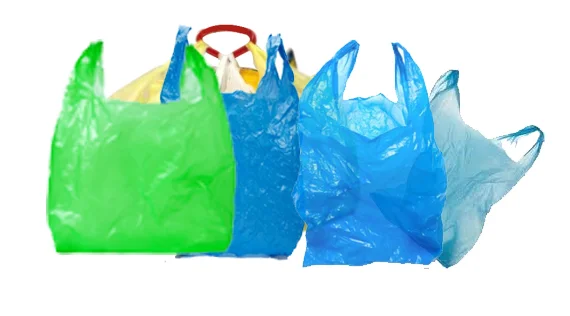
SEATTLE (Scrap Monster): Research reveals toxic chemicals leaching from recycled plastics used for food and drinks
Concerns about the safety of reusing single-use plastics are mounting, as new studies highlight potential risks associated with these common household items. From water bottles to takeout containers, many people regularly reuse these plastics without much thought. But what are the hidden dangers?
Experts are sounding alarms over the lack of regulation around plastics and the contaminants they may harbor. A recent study published in the journal Chemosphere has cast light on the presence of toxic compounds in items made from recycled materials, particularly black plastics commonly used in takeout containers and kitchen utensils. This has raised worries about what we might be unintentionally ingesting.
"Black plastics are particularly concerning because they are often made from recycled electronic components, which can include harmful materials not intended for food use," said Tizazu Mekonnen, a chemical engineering professor at the University of Waterloo. The study revealed alarming data—85 percent of the analyzed items contained brominated fire retardants (BFRs), toxic chemicals often added to plastics to prevent fires. This exposure through everyday utensils could translate to significant health risks.
Dr. Sehjal Bhargava, a family physician and public health advocate, agrees, pointing out the potential health impacts associated with consuming food contaminated by these leachates. While the full extent of these health concerns is not yet fully understood, the evidence linking these chemicals to serious issues like cancer and reproductive problems continues to grow. "More research is needed, but the trends we're seeing are indicative of significant risks," she explained.
The study estimated ingestion levels could reach up to 34,700 nanograms of decabromodiphenyl ether per day through the use of contaminated utensils. This amount is concerningly close to the U.S. Environmental Protection Agency's recommended safety limit of 42,000 nanograms per day for an average adult. The ingestion of fire retardants often correlates with significant long-term health risks, including developmental and reproductive issues.
So, what exactly is black plastic? Typically, its color is derived from carbon black, which is produced from the incomplete combustion of coal, oil, or even vegetable matter. While the color itself isn’t harmful, the problems arise when black plastic is formed using materials containing toxic additives from electronics or other sources. Dr. Elizabeth Gillies, a biochemist from Western University, explains the hesitation surrounding recycled materials: "Recycled plastics from electronic waste can carry BFRs, which might pose risks when they leach out during usage, especially under heat."
The dangers amplify when black plastic products are heated—think microwaving food or using those utensils on hot stoves. Research indicates the leaching of harmful chemicals can be significant under such conditions. “If your thermos lid is black plastic and you heat your drink, you could potentially be exposing yourself to harmful substances,” added Mekonnen.
Concerns expand even with age. A 2018 study indicated cooking with black plastic utensils could lead to exposure averaging around 60 nanograms per day, raising more alarms about the use of older plastics which may have leached chemicals over the years during past usage. While room temperature use might seem safer, the consensus is clear: the best practice is to minimize exposure entirely.
To address these rising concerns, experts suggest significant changes. Canada has taken some proactive steps by banning certain toxic substances from being processed or manufactured through existing regulations. Nevertheless, loopholes allowing recycled electronics to mingle with food-grade products still exist. Bhargava calls for stricter regulation of recycled thin plastics, especially around food safety standards: “We need targeted legislation to limit or prohibit black plastic use for food applications entirely,” she asserts.
Meanwhile, the European Union has already set laws restricting recycled plastics from electronic waste containing harmful compounds from being incorporated back to kitchenware. Similar legislation might be beneficial to align with international best practices, ensuring safer consumer products.
The growing body of research continues to underpin the consensus among scientists and health experts—reusing single-use plastics, particularly items made from black plastics, poses unforeseen risks. With everyday health at stake, shifting toward safer materials may be the next best step for public health and safety. The urgency of the situation warrants action, and both consumers and policymakers must prioritize finding solutions to mitigate these risks before it’s too late.
Courtesy: www.evrimagaci.org



| Copper Scrap View All | |
| Alternator | 0.42 (0) |
| #1 Copper Bare Bright | 4.35 (-0.04) |
| Aluminum Scrap View All | |
| 356 Aluminum Wheels (Clean) | 0.83 (0) |
| 6061 Extrusions | 0.73 (0) |
| Steel Scrap View All | |
| #1 Bundle | 360.00 (0) |
| #1 Busheling | 380.00 (0) |
| Electronics Scrap View All | |